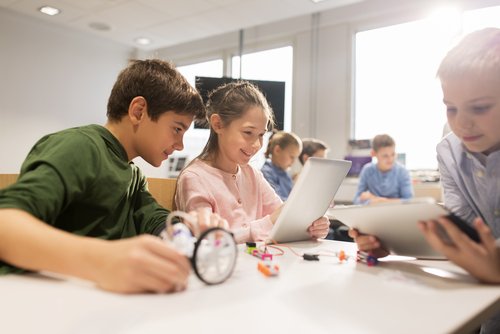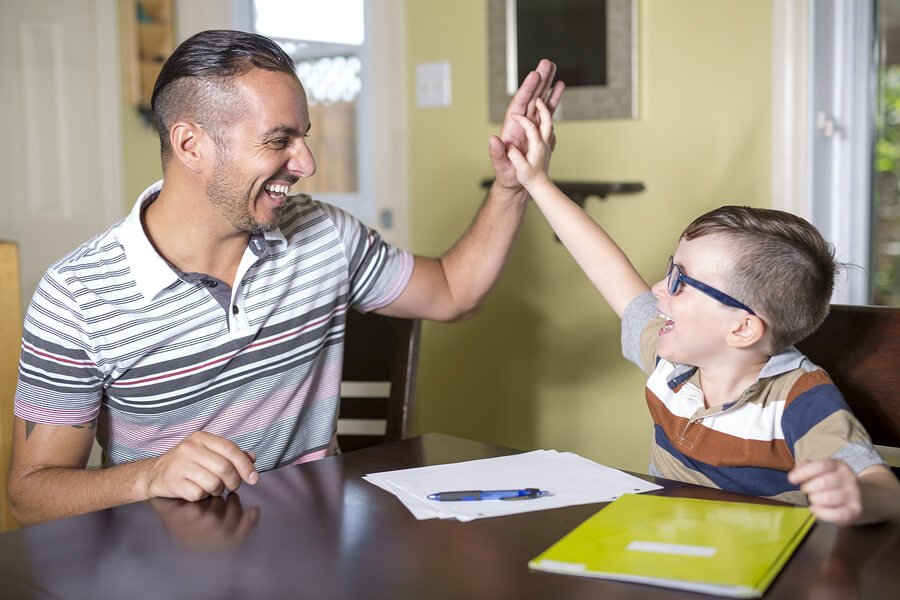Keys to Help Your Children Be Productive Students

What are the keys to help children become productive students? Excelling academically isn’t as simple as you might think.
It’s popular belief that if kids go to a good school or do all their homework, it’ll be enough. However, when kids bring home their report cards, you might notice average or low performance.
To help your children become productive students, it’ll take more than just studying or having a high IQ. There are a few different things to take into account, such as whether or not kids are nourished or receive the support they need.
We know that this can be a complex topic. Therefore, to find solutions that really work for your children, don’t miss out on these tips below.
What does being a productive student include?
Productivity and success in school are connected across all courses. However, we must understand productivity by linking it to efficiency. Set aside your old beliefs that productivity is doing more or being busy all the time.
Therefore, it’s important to know that the time your kids spend studying doesn’t have to be long to be productive. Your children just need to be concentrated and focused to retain information.
In addition, they need to be able to understand what they read. They need to be actively paying attention.
To achieve this, there are a few factors for kids to feel comfortable and have all the tools they need. Therefore, they can get everything done that they need to.
Here are some keys to help children become more productive students.

Keys to help your children be productive students
1. Good nutrition and rest
First, you need to start with the basics, which is a good diet and enough rest. Make sure they don’t skip breakfast. Breakfast provides 25% of the daily calories the body needs to function properly.
Children who don’t eat before going to school have little energy during class. They also have attention issues, headaches, and don’t retain information. The same thing happens when they don’t get enough rest at night.
We recommend the same thing for afternoon activities. Make sure they eat a good lunch and an afternoon snack before they start studying. Also, if possible, they could take a little nap.
2. A good study space
Your kids should have a desk or a table to do their homework. There, they can feel comfortable and work without distractions, like the television. Remember, less is more when decorating your children’s study space.
Always check that the desk has a computer or laptop if necessary, plus pencils, notebooks and textbooks. It’s important that there isn’t anything else. Take away their cell phone, tablet, or any toys that might distract them.
“It’s important to know that the time your kids spend studying doesn’t have to be long to be productive. Your children just need to be concentrated and focused to retain information.”
3. Use an ergonomic chair to study
In the study space, it’s important to have good, supportive furniture so your kids feel comfortable. This includes having an ergonomic chair.
Most parents forget that if the chair isn’t good, their kids will constantly be moving around.
As a consequence, they’ll lose track of what they’re reading. This makes it difficult to be productive.

4. Actively collaborate with your children
You need to be ready and willing to work with your children. Don’t skimp on helping them when they need help.
If they need to do a group project, let them come to your house. Another good suggestion is to periodically check their eyes to see if they need glasses.
Finally, remember to provide your child with emotional vitamins. Kids with high self-esteem are confident in their abilities. Confidence and the factors we mentioned above will help lead to better performance at school.
All cited sources were thoroughly reviewed by our team to ensure their quality, reliability, currency, and validity. The bibliography of this article was considered reliable and of academic or scientific accuracy.
- Cortese, A. (2011). Técnicas de estudio. Metodología de la investigación.
- Narváez, M. R. T., Guzmán, I. T., González, M. D. C. U., & Robayo, A. M. M. (2009). Hábitos de estudio vs. fracaso académico. Revista educación, 33(2), 15-24. https://www.redalyc.org/pdf/440/44012058002.pdf
- Ramos, C. B. (2007). La incidencia de las TICs en el fortalecimiento de hábitos y competencias para el estudio. Edutec. Revista Electrónica de Tecnología Educativa, (23), a077-a077. http://edutec.es/revista/index.php/edutec-e/article/view/497
- Art Markman Ph.D. (2012). Developing Good Study Habits Really Works. Sychonomic Bulletin & Review.
- Robert Bjork y Nate Kornell. (2007). Principles of cognitive science in education: The effects of generation, errors, and feedback. Psychonomic Bulletin and Review.
- Quintanilla Paz Soldán, F. ( última consulta octubre 2019). Hábitos de estudio. [ material de apyo al tutor]. Recuperado de: www.prepa8.unam.mx
- VIU. (17 noviembre 2015). Lad técnicas de estudio mejor valoradas pata niños. Recupetado de: www.universidadviu.es
- Gabinete Psicodiagnosis (s.f.). Como motivar a estudiar. Recuperado de: https://psicodiagnosis.es/areageneral/otros-temas/como-motivar-los-nios-a-estudiar/index.php
This text is provided for informational purposes only and does not replace consultation with a professional. If in doubt, consult your specialist.








